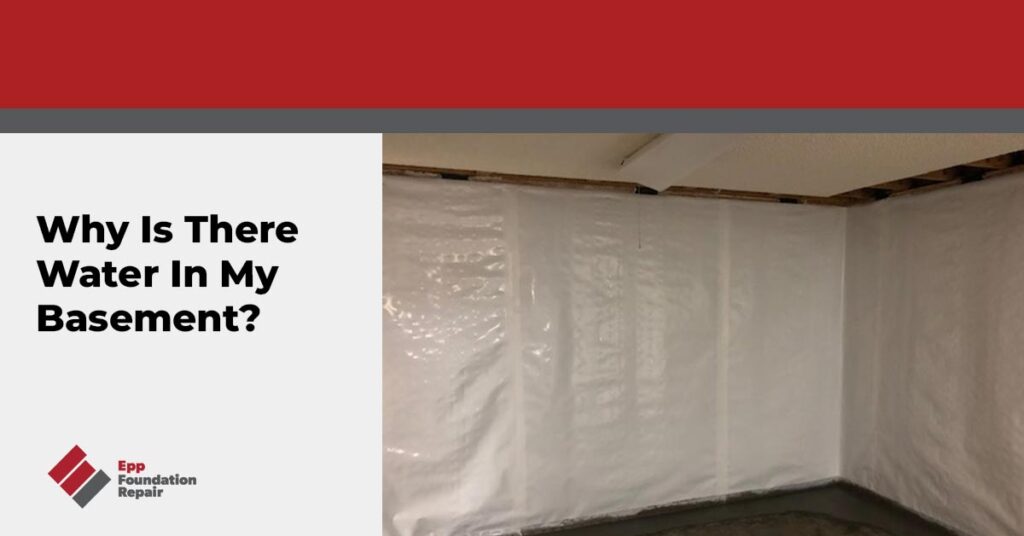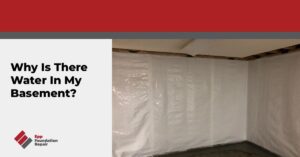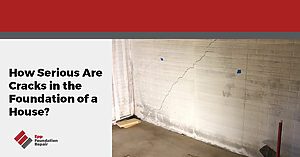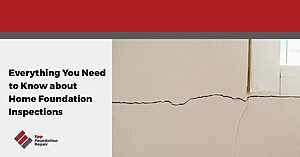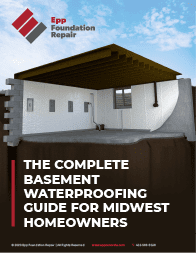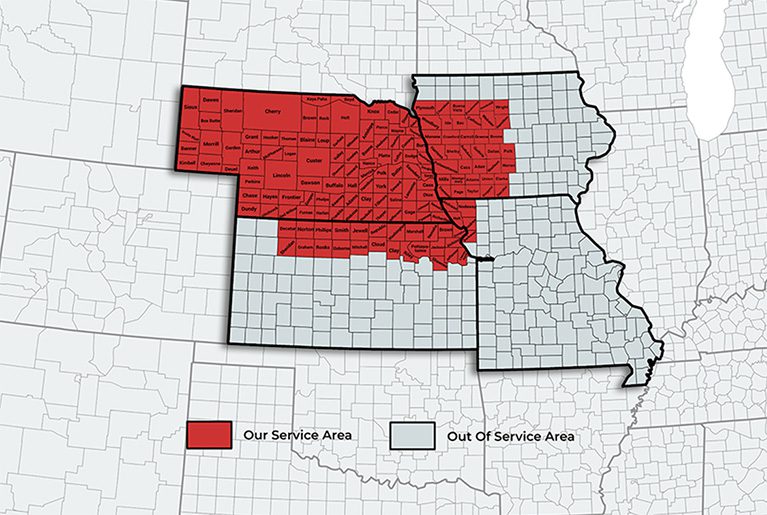Are you a homeowner wondering why there’s water in your basement? If so, don’t hit that back button because you’ve landed on the right page. In this article, we’re going to talk about why there’s water in your basement, what to do if you have water in your basement right now, and how to prevent water from entering your home’s basement.
Why Do Basements Get Wet?
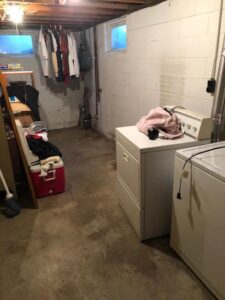
Basements can be a great way to add extra living space to your home. However, they can also be a major headache if they get wet. There are a number of reasons why basements can get wet, including the following:
- Poor drainage around the foundation – Excess moisture in the soil around a foundation that can’t drain off can cause hydrostatic pressure to build up and push against foundation walls. Hydrostatic pressure is strong enough to push water through tiny, invisible cracks in a foundation wall as well as through the cove joint, the area between the basement wall and the floor.
- Plumbing leaks
- Honeycombed concrete walls – Hydrostatic pressure can easily push water through a honeycombed concrete wall.
- Over-the-top seepage – This is when water seeps through the area between the top of a foundation wall and the floor above it.
- Leaking window wells
Whatever the cause, a wet basement can be a serious problem, leading to mold growth, structural damage, and even health issues for you and your family. If you’re experiencing a wet basement, addressing the problem as soon as possible is essential to prevent further damage and ensure that your home remains safe and healthy.
For more information, see egress window size.
Signs There’s Water In Your Basement
If you’re concerned about the possibility of water in your basement, keep an eye out for some of the telltale signs. These might include the following:
- Musty odor
- Dampness or condensation on the walls
- The presence of mold or mildew
- Water-stained or blistering walls
- Pooled water on the basement floor
- Water running down the wall
- A ring of dampness at the base of the basement wall
- Deterioration of any wooden structures in the basement
- Moldy carpets
If you notice any of the above, there’s probably water in your basement. Thankfully, there are steps you can take to repair the problem and prevent it from happening again. That’s what we’re going to cover in the following two sections.
What To Do If You Have Water In Your Basement Right Now
If there’s water in your basement, you need to take action right away. Don’t delay because the longer you wait, the more damage can be done to your belongings and the structure of your home. Here’s what you need to do:
- The first step is to find the source of the water and turn it off. For example, if the water is coming from a leaking pipe, you can turn off the water and then fix the line. If the problem is poor drainage around the foundation, this is a more tricky situation.
- Any standing water in the basement needs to be removed as quickly as possible before it leads to mold growth. For more information, see Basement Flooded: What to Do.
- Don’t hesitate to call in professionals. They have the tools and expertise to handle the situation safely and effectively. Remember, time is of the essence when it comes to dealing with water in your basement.
How To Prevent Water In Your Basement
Fortunately, there are some simple steps you can take to prevent water from getting into your basement:
- Ensure that your gutters are free of debris and functioning properly. Clogged gutters can cause water to spill over the side of your home and soak the ground around the foundation.
- Install downspout extensions to direct water away from your home’s foundation before releasing it.
- Regrade the ground around your home so that it slopes away from the foundation. This will stop water from draining toward the foundation.
- Install a drain tile system, either exterior or interior. A drain tile system prevents excess moisture from building up in the soil around the foundation. They’re extremely effective. For more information, see Basement Drain Systems: The Secret To A Dry Basement.
- A French drain in your yard will channel water away from the foundation toward a dry well or drainage ditch. This prevents water from pooling in your yard and soaking the soil around the foundation.
- Ensure any cracks in your foundation walls are sealed to prevent water from seeping in. We recommend letting a professional handle this.
- You can also cover the basement walls with a thick vapor-retarding barrier.
Waterproofing your basement is the best way to prevent moisture damage and costly repairs. A qualified contractor can take a look at your home to determine exactly what needs to be done to make sure your basement remains dry and comfortable. That said, even minor household fixes can help keep moisture out of your home and reduce the risk of water in your basement. For instance, keeping gutters clean, decreasing soil buildup near exterior walls, refraining from using too much water outside your home, and checking for cracks in the foundation which could make it easier for water to enter the basement. These should all be part of your regular maintenance routine.
Contact Epp Foundation Repair Today
If you have a problem with water in your home’s basement, contact us today to schedule a free evaluation. Our experienced team of certified technicians can quickly evaluate the situation and provide an accurate repair estimate. Don’t wait until the problem becomes worse and costs more to fix. Since 1994, we’ve helped clients in Lincoln, Omaha, Kearney, Southeastern Nebraska, Northwestern Missouri, and parts of Northeastern Kansas with foundation repair, basement waterproofing, crawl space encapsulation, and concrete leveling for their homes.

